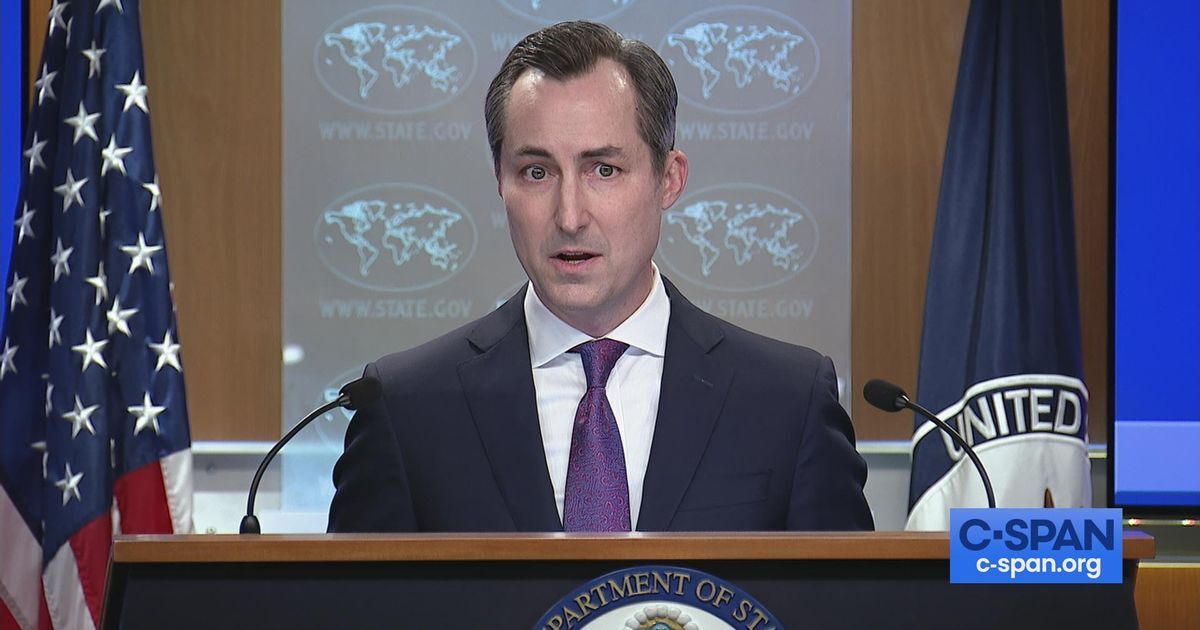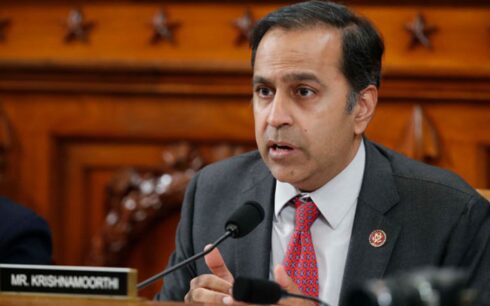The US State Department’s spokesman Matthew Miller said Washington is not reconsidering opening its embassy in Afghanistan and that the Taliban is a long way from gaining international legitimacy.
Addressing a press briefing on Wednesday, Miller said while the US and its allies do engage with the Taliban on certain issues, Washington has made it clear to the Taliban that “there are certain steps that we expect them to take if they want to gain any form of international legitimacy, which they are a long way from reaching, if at all possible.”
Miller’s statement came on the back of a question on whether he agreed with British MP Tobias Ellwood’s controversial assessment of Afghanistan under the Taliban.
He also stated that the question of international legitimacy directly relates to the treatment of women and girls in the country, which he said “continues to be abhorrent.”
“We’ve noted the latest moves by the Taliban, which follow, unfortunately, in a long line of steps they have taken to discriminate against women and girls. We strongly object to those steps, and of course we know that others in the international community take note and they consider those in assessing their relationship with their government,” he said.
Miller also commented on the House Foreign Affairs Committee Chair Michael McCaul’s latest subpoena which demands the release of the State Department’s After-Action Review (AAR) files.
According to a statement from McCaul’s office, while the department has complied with two of the three items requested by McCaul on June 8, it has repeatedly failed to produce the Afghanistan AAR files within the committee’s specified deadlines.
The statement noted that the State Department has until 10:00 am ET on Tuesday, July 25, to produce the files.
In response to this move, Miller said on Wednesday that the State Department has “seen a number of subpoenas from this committee, and the thing that continues to be disappointing about the committee’s actions is that in all of these instances they issue subpoenas when we are in the middle of good-faith negotiations with them about what we can provide to them, consistent with the very real obligations we have to protect certain information.”
He said that the department has already provided a subset of responsive documents, including senior-level memos on this issue and that last Friday, State Department staff were in continued conversations with the committee, where we made clear that future productions were forthcoming.
He slammed the committee for now having “short-circuited” the discussions by issuing the subpoena.
Miller said the State Department has continued to see the committee “short-circuiting” the negotiations process, where we think we’re engaging in good faith, and in the middle of those conversations the committee jumps ahead with a subpoena.
He said however that issuing back-to-back subpoenas while the department is actively responding to the committee’s requests “cannot be considered acting in good faith.”
He went on to say that “it is unproductive to issue subpoenas when we’re in the middle of these negotiations. I would also say it is inconsistent with the process that the courts have laid out for appropriate, legitimate oversight. The courts have made clear that Congress should not just jump into subpoenas, especially when they’re in the middle of conversations with the Executive Branch about the Executive Branch protecting legitimate Executive Branch equities.
“So there are probably a number of words I can use for the committee’s tactics. I will say, for our perspective, we will continue to engage with them in good faith, and all that we would ask is that they do the same.”





